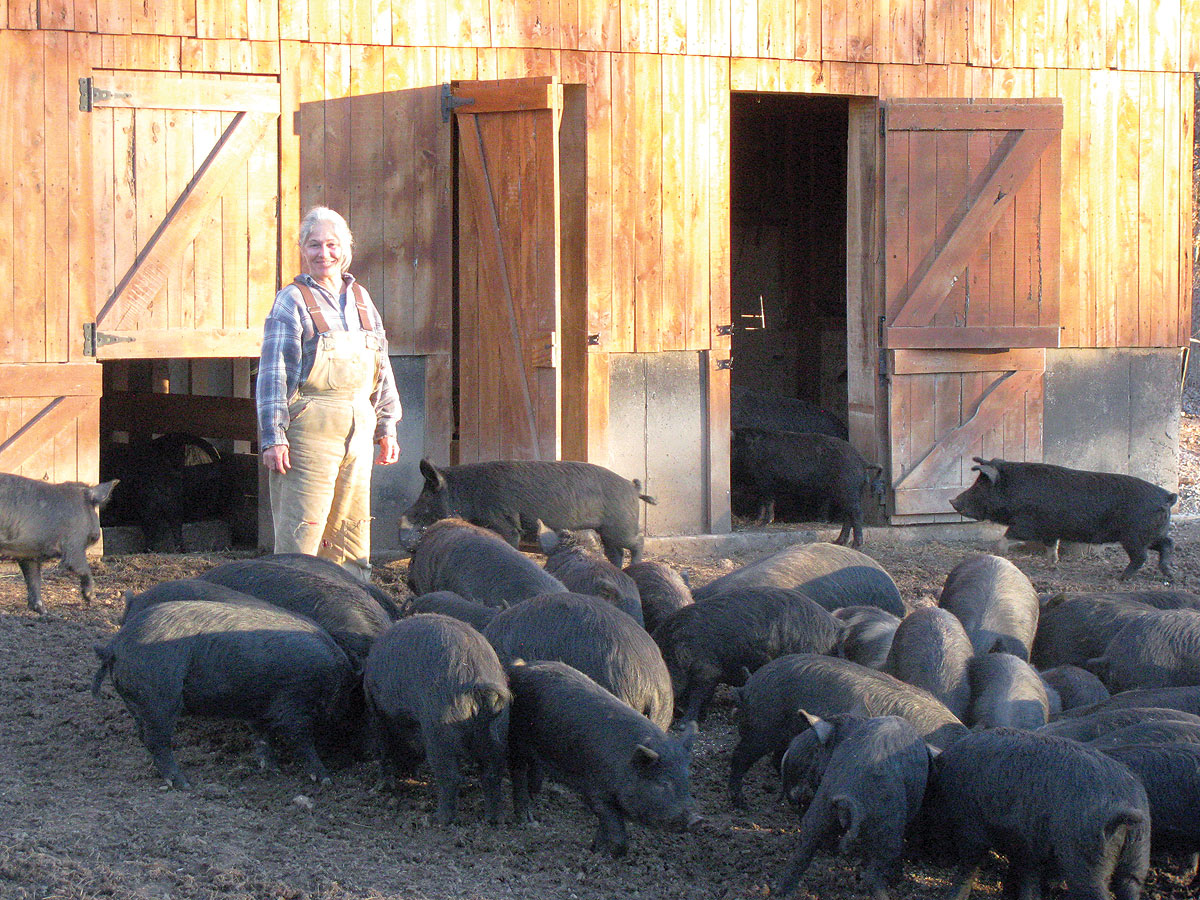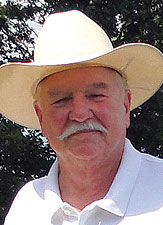
Liz Hamann has a passion for farm life and animals at her farm in Niangau, Mo.
Hamann Farms is owned by Matt and Liz Hamann, and located near Niangua, Mo., in Webster County. They named it ‘Farms’ because they also have a farm in Alaska, but live in Missouri.
They bought their Missouri farm in 2012 and moved from Oklahoma.
“We were in Oklahoma because my husband was going to school there. He’s a military veteran,” Liz explained. “He went there for two years and then he said, ‘We’re not staying in Oklahoma,’ so we started looking and decided we wanted to come to Missouri.”
She said they were looking for the right property for raising pigs.
They raise pigs, chickens, a couple of beef calves and keep bees. For Liz, the chickens came first.
“My grandmother had chickens when I was a kid,” Liz said.
Next came pigs.
“My uncle got me into hogs when I was around 14,” Liz recalled. “He gave me a runt. So I raised that runt up and my dad sold it because I didn’t want to butcher it. I just loved it, because contradictory to what everyone says, they are not a dirty animal. They are a clean animal. You give them space and they prefer to be clean. They don’t like being dirty. They like to root around in the dirt and roll around in the mud, but they’re not a filthy animal.”
Since that first pig, Liz has raised pigs when she had the opportunity, land, and resources. Right now she is raising American Guinea Hogs and KuneKunes. She said the KuneKunes are supposedly an Australian breed.
“The American Guinea Hog are an old southern heritage breed,” Liz said. “They’re on the endangered list, but they’re coming back. That was one of the reasons why we wanted them, because now people get to start eating them and they like the meat. Then more people want to raise them. They’re a woodland pasture breed. They’re a smaller breed. That’s another reason I like to work with them. They don’t do well in confinement. Their top weight is normally around 300 pounds. They’re easy to work with, and very good mothers. You don’t have to put them in the farrowing crate. They’re a good, old breed. Some people say even Thomas Jefferson had a play in defining the breed.”
The other breed she raises is KuneKunes.
“They are a smaller breed, like the American Guinea Hogs, and they’re also a good pasture breed,” she said. “When we crossed them, we found that we like the temperament even better than the American Guinea Hog.”
The boar they have right now is a KuneKune, but Liz said they will go back and forth between the two breeds.
“I still have two purebred American Guinea Hog sows and when I breed them back with a Guinea Hog then I’ll have purebred offspring,” Liz said. “The only purebred KuneKune that I have is the boar.”
Liz has four breeding sows, a boar and then a range of pigs from a week old to a year old ready to go to the butcher.
“From a week old to butcher age, we have about 50,” she said.
She sells pork at farmers markets in Lebanon and Marshfield, Mo. She also sells eggs there. Liz has 21 chickens. Two are roosters. The chickens are a mixed breed of laying hens. She said they lay more eggs in the spring.
“When the winter months are nice, they lay pretty good in the winter. But it’s hit and miss, because they lay depending upon the daylight,” she said. “When it gets too hot in the summer, they back off.”
Her chickens receive chicken scratch, plus black oil sunflower seeds and whatever they find because they are free range.
Bee keeping was not something she grew up with.
“I like honey, and I thought “I’m going to get a hive and I got ‘Bee Keeping for Dummies.’
“I didn’t really know anyone who had bees, so I read my book, and I found a guy that had bees. This was when we were in Oklahoma and he was just across the border in Arkansas. So he wasn’t real close for me to ask a lot of questions. So it was learning the hard way.”
She now has six hives. She lost two hives; one because of the hot, dry weather and the other last winter. Liz said they can be “difficult to keep because of all of the problems going on nowadays. You’ve got the colony collapse disorder, then you’ve got mites.”
“Colony collapse disorder is for multiple reasons; pesticides, herbicides. A lot of people don’t realize that herbicides kill bees too, but they do,” she explained. “They are also attributing the disorder to all the cell towers which interferes with them. The chemicals in the cell towers is what they’re saying is the main reason for the colony collapse disorder. Fortunately, I haven’t had any problems, but I’m real careful about what I introduce onto the place.”
Liz also sells honey at the farmers markets, and at the request of the managers of the markets, she will sell beef.
“I’m not raising the cow and having a bull. I will buy calves from my neighbor and raise them to butcher,” he said.






